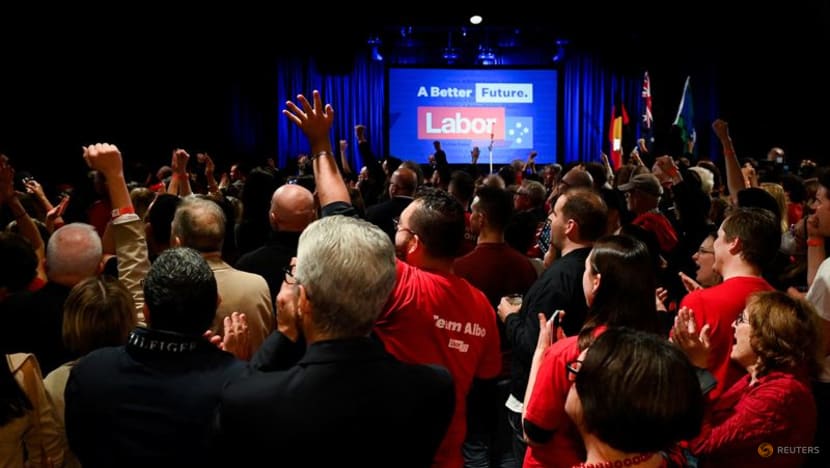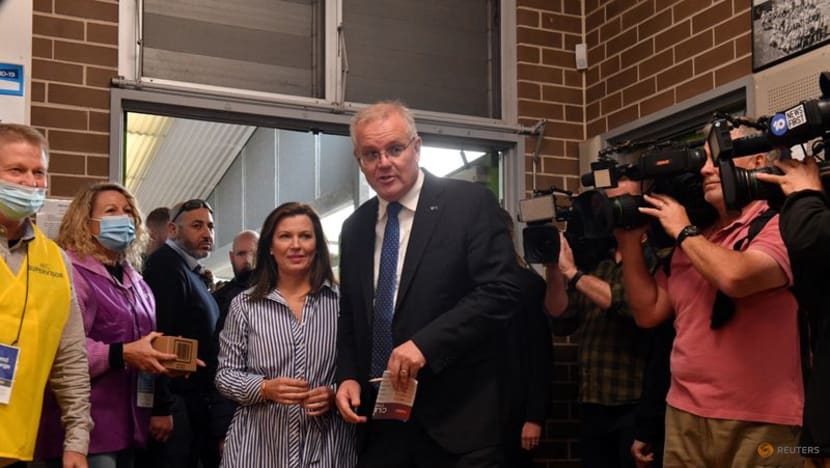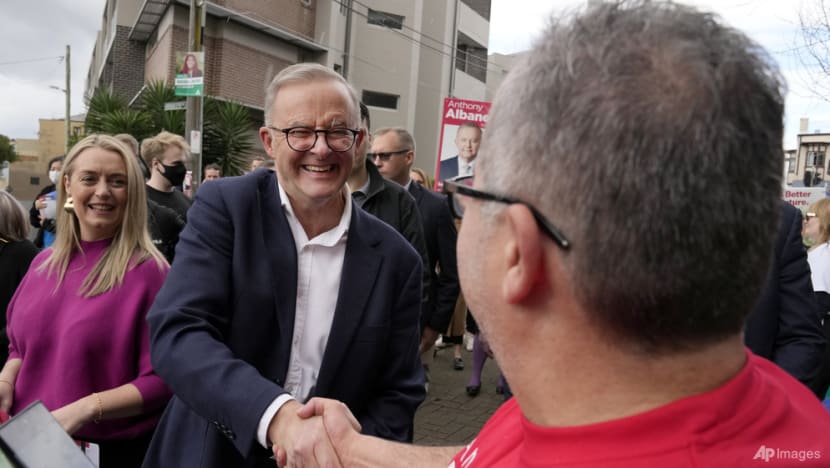Australian voters oust PM Morrison's coalition, Labor to form government: Media projections

Supporters react to election updates broadcasted on a screen while they wait for Anthony Albanese, leader of Australia's Labor Party, to speak about the outcome of the country's general election in which he ran against incumbent Prime Minister and Liberal Party leader Scott Morrison, in Sydney, Australia May 21, 2022. REUTERS/Jaimi Joy
SYDNEY: Australia's opposition Labor Party appeared on track to win Saturday's (May 21) general election, television stations projected, as voters deserted the ruling conservative coalition in favour of climate-focused independents and smaller parties.
A win would end nine years in opposition for Labor and leader Anthony Albanese, but they may yet have to rely on support from the Green Party and a group of so-called "teal independents", who campaigned on policies of integrity, equality and tackling climate change.
Partial results showed Prime Minister Scott Morrison's Liberal-National coalition was punished by voters in affluent urban seats and Western Australia in particular.
"I can't see the coalition getting above 60 (seats)," the Australian Broadcasting Corp's election analyst Antony Green said in a live broadcast. Forming a government requires 76 of the 151 lower house seats.
"Unless the Labor Party sat on its high horse and said 'We've got to 74, that's not 76, we're not forming government', there is no alternative government in that parliament," Green added.
The Sydney Morning Herald said Albanese will become the next prime minister.
Sky News projected the ruling coalition "can't win majority".
Final results could take some time as counting of a record number of postal votes is completed.
Centre-left Labor had held a decent lead in opinion polls, although recent surveys showed the Liberal-National government narrowing the gap in the final stretch of a six-week campaign.
A Newspoll survey by The Australian newspaper out on election day showed Labor's lead over the ruling coalition dipping a point to 53-47 on a two-party-preferred basis, where votes for unsuccessful candidates are redistributed to the top two contenders.


TURNING TEAL
In at least five affluent Liberal-held seats, so-called "teal independents" looked set to win, tapping voter anger over inaction on climate change after some of the worst floods and fires to hit Australia.
Three volunteers working for teal independent Monique Ryan, who was challenging Frydenberg, said they joined Ryan's campaign because they are concerned about the climate for the sake of their children and grandchildren.
"For me, it's like this election actually feels hopeful," Charlotte Forwood, a working mother of three adult children, told Reuters.
Early returns suggested the Greens had also made ground, looking to pick up to three seats in Queensland.
Greens leader Adam Bandt, who retained his inner-city Melbourne seat, said climate was a major issue for voters.
"There was an attempt from Labor and Liberal to bury it, and we were very clear about the need to tackle climate by tackling coal and gas."
Morrison and Albanese earlier cast their votes in Sydney after making whistle-stop tours across marginal seats in the final two days of a campaign dominated by rising living costs, climate change and integrity.
As Labor focussed on spiking inflation and sluggish wage growth, Morrison made the country's lowest unemployment in almost half a century the centrepiece of his campaign's final hours.










